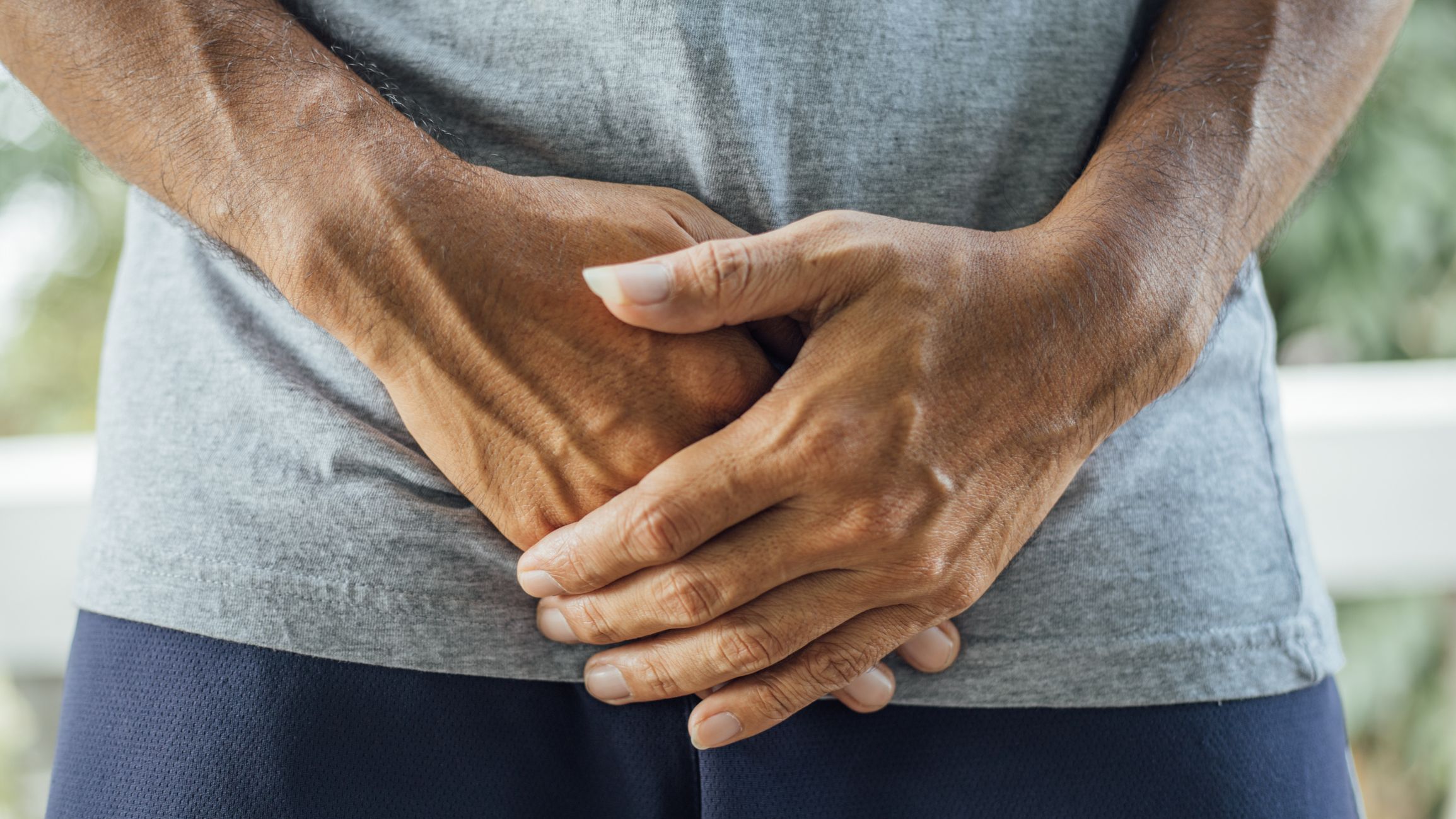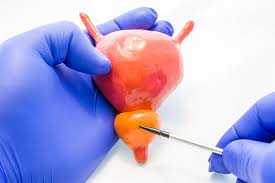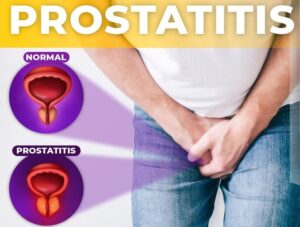Condition:
Prostatitis24th July

This is a common condition affecting young and middle aged men. It is often neglected and overlooked as a potential diagnosis, particularly as it can present with a wide range of symptoms ranging from vague aches and pains to a serious acute infection.
Prostatitis literally translated means inflammation of the prostate gland but it describes a spectrum of symptoms. In the majority of cases it is not caused by bacterial infection but a small proportion of men will develop an acute severe infection with a fever and pain and may require a period of time in Hospital. Symptoms of chronic prostatitis often develop slowly and are less severe. It is not always possible to cure prostatitis but it will often settle on it’s own after a period of time. Nevertheless, review by a Urologist is recommended if the symptoms are in any way troublesome.
Acute bacterial prostatitis (uncommon - type I)
This tends to declare itself quite quickly with a fever and flu-like symptoms with pain in the genital area including penis and lower back. It can also cause troublesome urinary symptoms and pain with ejaculation. This is a serious condition requiring prompt review by a Doctor.
Chronic bacterial prostatitis (type II)
The symptoms and signs with this type of problem tend to come on gradually and are less severe and often intermittent. The symptoms may respond to a prolonged course of antibiotic treatment. Symptoms include troublesome urinary symptoms including a burning pain when urinating. Discomfort in the prostate and genital area as well as the lower back and abdomen is possible. It can be more difficult to pass water and ejaculation can be painful and there can be blood present. Bladder infections and cystitis can also develop.
Chronic prostatitis and chronic pelvic pain syndrome the most (common – type III)
This is by far and away the most common type and tends to cause similar symptoms to type II. It would be very uncommon to have a fever or have any bacteria detected in the urine or ejaculatory fluid although there may be signs of inflammation (some types do show inflammation and others don’t).
There is a lot that we don’t understand with regards to both bacterial and non-bacterial prostatitis. Chronic bacterial infection may follow an acute prostate infection or instrumentation such as catheterisaton. It may also develop following infections elsewhere in the urinary tract or other parts of the body.
The possible risk factors or triggers for non-bacterial chronic prostatitis are listed below:
- Infections may be caused by an agent that we are currently unable to detect
- Heavy lifting particularly with a full bladder may cause reflux of urine inside the prostate
- Occupations where somebody is exposed to strong vibrations such as truck driving has been considered
- Physical exercise such as running or cycling are thought to irritate the prostate gland
- Pelvic muscle spasm or uncoordinated voiding with resulting high pressures inside the prostate
- Reduced frequency of ejaculation – there is no real evidence to support this but it is widely held belief amongst Urologists.
- Structural abnormalities of the renal tract (congenital or acquired). One such example is a urethral stricture (scarring), which results in a poor flow. For some men this gives rise to inflammation of the prostate.
Management Options
Assessments:
- Examination
- Urine analysis
Treatments options:
- Lifestyle measures - Exercise, relaxation techniques
- Medications - Antibiotics, Alpha blockers, Anticholinergics, Analgesia, Antidepressants
- Surgery - prostate massage
Luts
 Location of Prostatitis
Location of Prostatitis
24th July
 Difference between normal and Prostatitis
Difference between normal and Prostatitis
24th July
Book an Appointment
Contact us during office hours at our clinics
Specialist Medical Clinic+350 200 49999
MidTown Medical Clinic+350 200 62222
HC Marbella Hospital+34 952 90 86 28
Or for an emergency consultation 24/7
James Allan+44 7984 292 776
Or email uscontact@theurologyclinic.gi
- LUTS
- BPH
- Prostate cancer
- Bladder cancer
- Kidney stones
- Ureteric stones
- Circumcision
- Vasectomy
- Kidney stones
- Bladder cancer
- Prostate cancer
- Enlarged prostate
- Incontinence
- Ureteric stones
- Circumcision
- Vasectomy
